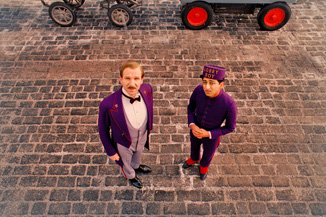|
|
They Shoot Oscar Prognosticators, Don't They?Handicapping the Technical Races: Part IIBy J. Don BirnamFebruary 5, 2015
The presence of The Imitation Game and The Grand Budapest Hotel here, both of which also scored directing and writing nods, shows that both movies have to be taken seriously as Best Picture front-runners. Neither, however, will be able to pull it off for Editing. The Imitation Game’s editing is virtually unnoticeable and while the vignettes of Grand Budapest provide for quick-paced and important editing, I think the film will be rewarded plenty in other tech races. It comes down to the action film, American Sniper, and the beloved and showy Whiplash. For many reasons, including its box office success, many are going with Sniper here. Indeed, action movies do well here, as when The Girl with the Dragon Tattoo shocked Oscarologists by pulling off an improbable win here against four Best Picture nominees. Bourne Ultimatum and Black Hawk Down are other good examples of action movies that have done well here, so the smart money is probably on American Sniper. Again, in this unpredictable year, I find myself at odds with the pundits. I may go out on a limb, however, and predict Whiplash here. The editing of the movie is crisp and poignant. It creates tension, moves you around the drum set, and even features a fast-paced action sequence at the climax of the film. Like with Sound Editing, I have a feeling that Whiplash has enough passionate support in the Academy that, together with a division of votes by the other movies, could propel it to a victory. The safe bet is American Sniper, but the more daring and, yes, even likelier outcome is Whiplash. Up next: The writing, acting, and directing awards.
|

|
|
|

|
Thursday, October 31, 2024
© 2024 Box Office Prophets, a division of One Of Us, Inc.


